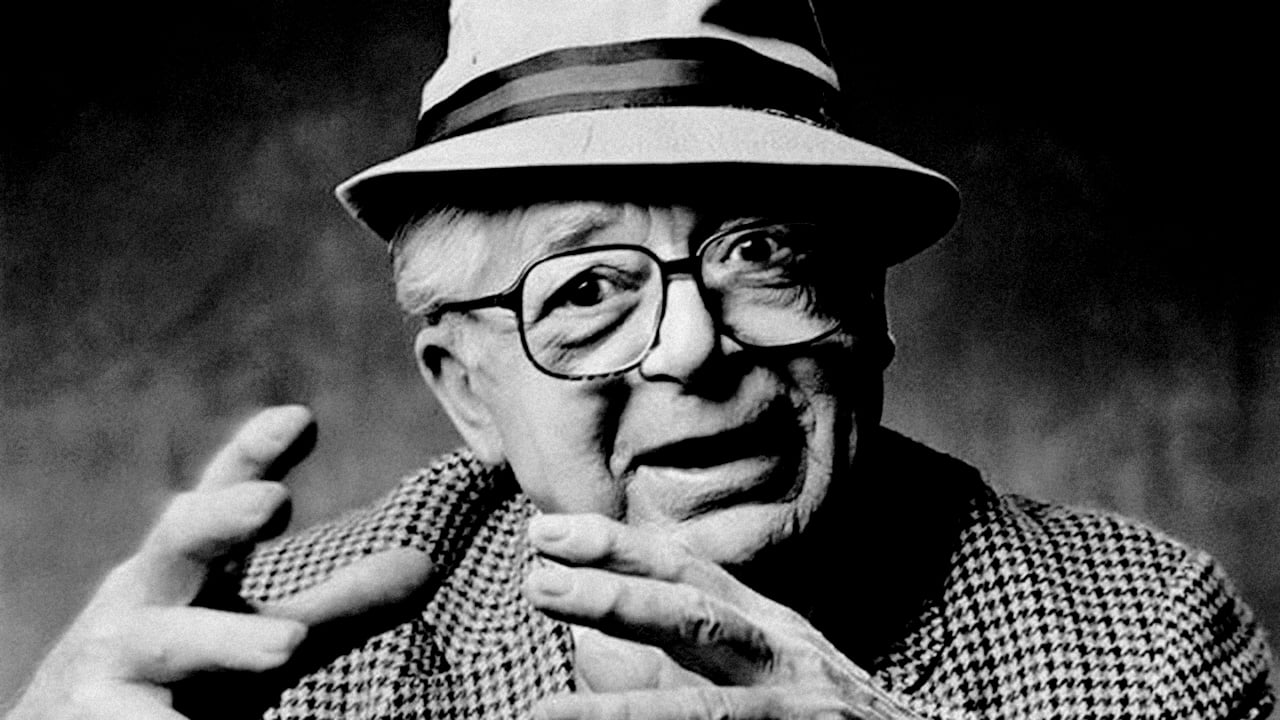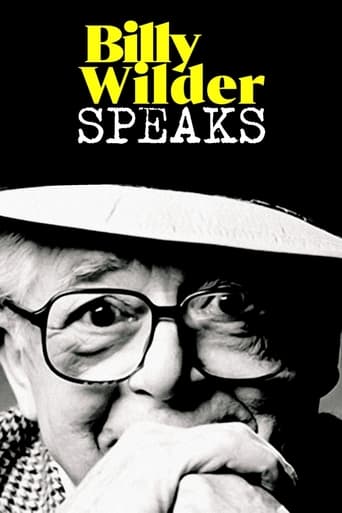

Maybe I'm crazy -- entirely possible -- but this seems to me to be identical to "Billy Wilder, wie haben Sie's gemacht?" which is another documentary containing the same interview. I'm not saying it's not edited differently or whatever - I don't know the material that well - but the interview with Wilder seemed the same. He speaks a great deal in German and tells some wonderful stories about Marilyn Monroe, Marlene Dietrich, Audrey Hepburn, the making of Sunset Boulevard and Sabrina, and the films he made about the concentration camps after the war that were shown in Germany.Wilder was a marvelous raconteur speaking in English or German, and his explanation of why he used "Isn't it Romantic" in so many Paramount films is hilarious, as are his stories of the first showing of Sunset Boulevard and trying to get Monroe to say It's me, Sugar," instead of "Sugar, it's me" in "Some Like it Hot." The stories are unforgettable, which is why I know I already heard them in "Billy Wilder, wie haben Sie's gemacht?" Well worth seeing if you're a fan of Wilder or just a film buff. He was a true genius and a lively personality.
... View MoreOscar-winning filmmaker and screenwriter Billy Wilder is interviewed in 1988, speaking rapidly in both English and German, touching on his perception of life through the camera lens via his childhood in war-torn Europe. Of course no Wilder conversation would be complete without behind-the-scenes stories on his many classic films, and wily Wilder seems happy to oblige our fascination with titles like "The Seven Year Itch", "Some Like It Hot", and "The Apartment". His recollections of working twice with actress Marilyn Monroe are particularly interesting, as are his off-camera skirmishes with Humphrey Bogart ("He did mock my accent..but everybody mocks my accent.") and James Cagney ("We were not of the same political persuasion."). Wilder is modest about his talents, grateful for the triumphs but well aware of the hurdles he had to maneuver to get his best work accomplished. Film historians will find this a wonderful documentation.
... View MoreIt's tempting to rate this 10 out of 10 just because one of the two people speaking is Billy Wilder but alas, the other one is Volker Schlondorff so I find myself paraphrasing the well-documented definition of golf as a good walk ruined; substitute talk for walk and you'll see where I'm coming from. For reasons best known to himself Schlondorff, who, like Wilder, is fluent in English, conducts about 40 per cent of the interview in German and lacks the courtesy to provide subtitles thus alienating a good proportion of viewers at a stroke. Wilder, of course, is always good value as a raconteur with right-on-the-money views on film-making, Hollywood, 'guys with beards' and so on. Most Wilder buffs have, of course, heard it all before but you can't have too much of a good thing.
... View MoreBilly Wilder Speaks (2006) *** (out of 4) Director Volker Schlondorff interviews legendary director Billy Wilder over a two week period and gets his thoughts on his films, writing and various other things. Overall it's a nice chat with Wilder but several times the director goes off topic with stuff that's not really interesting. I hoped there would be more of a commentary on his films but that's not the case, although he does have a few good thoughts on Monroe, Bogart doing comedy and other things.This is now available on DVD and can also be seen on TCM.
... View More